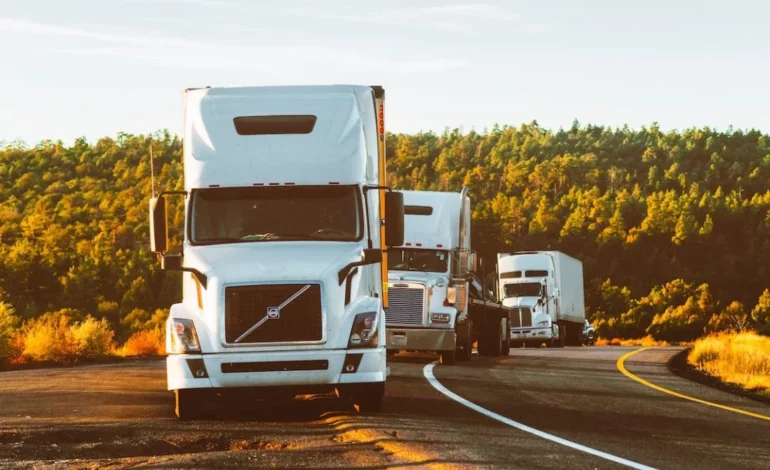
Truck Insurance Made Simple: What You Need to Know
Ever wondered if your truck insurance truly covers what matters? Whether you’re hauling cargo across the country or managing a fleet, having the right insurance isn’t just a requirement—it’s your safety net. Accidents, theft, or even unexpected breakdowns can happen anytime. The question is: are you protected? This guide will walk you through the essentials of truck insurance, making the process easier, clearer, and a lot less overwhelming.
Why Truck Insurance Isn’t Just Another Expense
If you rely on trucks for business, insurance from Insuregroup Australia is non-negotiable. But it’s more than just a legal requirement—it’s about safeguarding your livelihood. Imagine facing the costs of repairs, medical bills, or cargo loss without coverage. Those expenses can be devastating. Good insurance offers peace of mind, ensuring you’re not left stranded (literally and financially) when things go wrong. Plus, with the right policy, you can focus on keeping your operations smooth, instead of worrying about unexpected costs.
Types of Truck Insurance Coverages
Truck insurance isn’t one-size-fits-all. Different types of coverage are designed to protect you from various risks. Knowing what’s available helps you choose what’s right for your needs.
Public Liability Insurance
This covers damage or injury caused to other people or property. If your truck is involved in an accident, this insurance steps in to handle compensation costs, ensuring you’re not paying out of pocket for third-party claims.
Comprehensive Insurance
Comprehensive coverage offers broader protection. It includes accidental damage, theft, fire, and weather-related incidents. Whether you collide with another vehicle or get caught in a hailstorm, comprehensive insurance has you covered.
Cargo Insurance
If you’re transporting goods, cargo insurance is essential. It protects against the loss or damage of the goods you’re carrying. Considering how valuable cargo can be, this coverage is vital for both peace of mind and customer trust.
Downtime Insurance
When your truck is out of action, your income can take a hit. Downtime insurance compensates for the loss of earnings while your vehicle is being repaired, helping you stay financially stable during those periods.
What Factors Affect Your Premium?
Ever wondered why some premiums are higher than others? Several factors influence the cost of your truck insurance:
● Vehicle Type and Age – Newer trucks with safety features often cost less to insure, while older models can attract higher premiums.
● Driving History – A clean driving record helps keep costs down. On the flip side, a history of accidents or infringements will raise your premium.
● Cargo Type – Transporting hazardous or high-value goods? Insurers factor in the risk associated with what you carry.
● Distance Travelled – Longer routes increase exposure to risks, which can increase your premium.
● Security Measures – Installing alarms, GPS tracking, and secure parking facilities can help reduce costs.
Tips to Reduce Your Insurance Costs
No one wants to pay more than necessary. Here’s how you can keep your premiums in check while ensuring adequate coverage:
● Regular Maintenance – Keeping your truck in top shape not only prevents breakdowns but shows insurers you’re responsible, which may lead to lower premiums.
● Driver Training – Providing safety training for drivers can significantly reduce the risk of accidents and insurance claims.
● Increase Security – Simple measures like installing locks and parking in secure areas can make a difference.
● Bundle Policies – If you have multiple vehicles or need various insurance types, bundling them with the same provider can lead to discounts.
● Review Annually – Don’t let your policy auto-renew without checking if it still suits your needs. You might find better deals or coverage options.
Why Tailoring Coverage to Your Needs Matters
It’s easy to grab the cheapest policy and call it a day—but is that really protecting you? Customising your truck insurance ensures you’re covered for the risks that matter most to your operations. If you regularly haul high-value cargo, for example, skipping on cargo insurance could cost you dearly down the line. Or, if you rely on a single vehicle for all your jobs, downtime insurance could be the difference between staying afloat or struggling through repairs. The key is understanding your business’s unique risks and making sure your policy addresses them head-on.
Common Mistakes to Avoid
Insurance can be tricky, and it’s easy to make costly mistakes. Here are some pitfalls you’ll want to steer clear of:
● Underinsuring Your Vehicle – Trying to save by lowering your coverage? It could backfire if you face a hefty repair bill that isn’t fully covered.
● Ignoring Exclusions – Not all policies cover everything. Make sure you read the fine print so you’re not caught off-guard when making a claim.
● Skipping on Cargo Coverage – Even if the cargo isn’t yours, being liable for damaged goods can be a financial nightmare without the right protection.
● Not Updating Your Policy – Changed your routes, vehicles, or cargo types? Failing to update your insurer can void your coverage when you need it most.
● Choosing Price Over Quality – While saving is important, the cheapest policy isn’t always the best. Prioritise comprehensive coverage over just low premiums.
How Claims Work: What to Expect
If something happens and you need to make a claim, knowing what to do can make the process smoother. First, document everything—photos of the damage, police reports if required, and details of everyone involved. Contact your insurer promptly, providing all necessary information. The faster and more thoroughly you handle the paperwork, the quicker your claim can be processed. Some insurers offer 24/7 claims services, which can be a game-changer when you’re dealing with incidents outside regular hours.
Why Prevention Is Your Best Policy
While having solid insurance is crucial, preventing accidents and issues should always be the priority. Regular vehicle checks, driver rest periods, and route planning can significantly reduce risks. Safety doesn’t just protect your truck—it protects lives and keeps your business running smoothly.
Final Thoughts: Secure Your Journey
Truck insurance isn’t just another formality—it’s an essential part of protecting your livelihood. The right policy shields you from unexpected expenses, supports you during downtime, and ensures you meet legal obligations. By understanding your options and tailoring coverage to your needs, you’re setting yourself up for peace of mind on the road. Don’t wait until something goes wrong—review your policy, ask questions, and make sure you’re fully covered. After all, when your truck’s your business, staying protected isn’t just smart—it’s essential.



